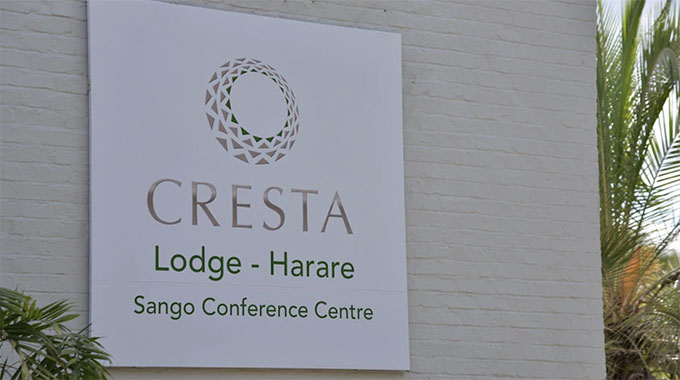Covid-19: What will happen to the academic calendar?

Leroy Dzenga Features Writer
Pandemics are unpredictable, especially those of a novel nature like Covid-19.
Covid-19’s evolutionary transitions over the past three months shows how much it has handicapped planning from nations to households.
In December, as news about the deadly respiratory disease filtered in from China, a number of countries thought it was a Chinese problem.
But since the world is now one big village, it did not take long for Covid-19 to spread to other countries, including Zimbabwe. It has spread in an unprecedented manner, with the United Nations describing it as the single largest threat to the world since World War 2.
Addressing a virtual media conference, UN Secretary-General Antonio Guterres bemoaned Covid-19’s spread and novelty.
“It is a combination, on one hand, of a disease that presents a threat to everybody in the world and, second, because it has an economic impact that will bring a recession that probably has no parallel in this recent past,” he said.
“This is indeed the most challenging crisis we have faced since Second World War.”
Mr Guterres’ observation was not far from the truth — it is indeed a crisis.
We can see that Covid-19 poses a serious threat to the world population through the way that the global school calendar has been disrupted.
It is one of the most enduring signs of global social order, seeing countries agreeing to shut down schools summarises the agency attached to this virus.
Very few establishments are as consistently populous as schools, their closure was justified, epidemiologists have long listed them among places with the highest likelihood to spread infectious diseases.
Zimbabwe, before announcing its 21-day lockdown closed schools as a way of reducing channels through which Covid-19 can spread.
The schools’ schedule closure was a week away, but Government could not afford to wait a little longer. It was a stitch in time. The downside of this disease is that it is unpredictable and can surge anytime.
Although no one wishes for this to happen to Zimbabwe, precedent has shown cases rising even though the curve appeared to be flattening.
The United States is one such country. A month ago, its President Donald Trump thought they had things under control, now he is predicting that the death toll in the worst case may reach 100 000.
What this means to Zimbabwe is, if things go wrong, there should be a plan to ensure schools continue even as the world continues to be under siege.
Countries like China are now pursuing online learning as a substitute for physical delivery of lectures, even in public schools.
They are not applying complex technology in their pursuance.
Swithen Mahachi, a Zimbabwean university student in China says they continue to learn even when the country is under lockdown.
“We have continued to learn,” he said.
“How it works is, when we open the application we use to study, first thing is to fill the attendance register.
“After that, the lecturer gives us PDFs to read then they send audio messages and videos with that day’s lesson. After that we discuss as a class and then we are given assignments.”
That approach is also being applied to lower levels of Chinese education.
Zimbabwe needs to look towards applying similar strategies, just in case the Covid-19 threat takes longer to diffuse.
The Ministry of Primary and Secondary Education (MOPSE) has hinted on using e-learning to proceed with teaching if a solution is not found early.
They have signed a partnership with Higherlife Foundation for learners to access educational content at no cost.
“Learners are advised to log in to the Ruzivo platform www.rdl.co.zw for study materials and other educational related materials. Our partner, Higherlife Foundation is availing this platform at a zero rate,” read a recent statement undersigned by MOPSE Permanent Secretary, Mrs Thumisang Thabela.
Shedding more light on the Governments strategy, MOPSE Deputy Minister, Edgar Moyo said there will be a multi-platform approach to e-learning whose systems are being put in place.
“E-learning as a means of tuition during the lockdown is being finalised. Different platforms will be used e.g. radio lessons and television programmes,” he said.
“Areas without radio and television signal with be serviced through printed materials which our Curriculum Development and Technical Services person are working on.
“The Audio Visual Services Unit of the Ministry is being resuscitated to roll out radio and television programmes.”
In higher education they have not disrupted the semester, they have just changed the method of delivery.
The Minister of Higher and Tertiary Education, Science, Innovation and Technology Development Professor Amon Murwira said there was no need to close universities as lectures can still be done remotely.
A recent circular by Great Zimbabwe University (GZU) to its students shows how this strategy is being implemented.
“The semester is still ongoing, however, lectures will be conducted through online and other alternative modes of delivery,” GZU Vice Chancellor Professor Rungano Zvobgo wrote to his staff and students.
“There will be no face-to-face lectures as is usually the case. A special remote learning facility, Google Classroom, has been launched. This will allow teaching and learning to continue as previously scheduled.”
For universities, this will not be a new concept entirely, Zimbabwe Open University (ZOU) already employs distant learning through its MyVista platform.
Through the MyVista platform students get their course modules, assignments and all the additional study materials that help prepare them for examinations.
In fact, it is possible for a student at ZOU to finish studies without physical interaction with the lecturer, although the students are encouraged to attend lectures that are held on selected weekends. But entirely adopting e-learning brings its challenges for countries like Zimbabwe.
A lecturer at Great Zimbabwe University said; “I do not think the strategy is for Zimbabwe, we are the ones who interact with these students. Most of them do not afford the data needed to learn online, maybe if mobile network operators allow them to connect for free, that is when this can work.”
The same argument can be made for those in primary and high schools too.
Zimbabwe and a quarter of the world are in lockdown as a response to Covid-19 which has overwhelmed global health systems.
As an initial response, a 21-day lockdown was prescribed by the national leadership in Zimbabwe.
Other countries have since extended the lockdown and there is a possibility Zimbabwe may be forced to take the same decision. But life will have to go on through other means.
In education, this will mean aggressively implementing e-learning, something the Government has begun working on, purposively.









Comments